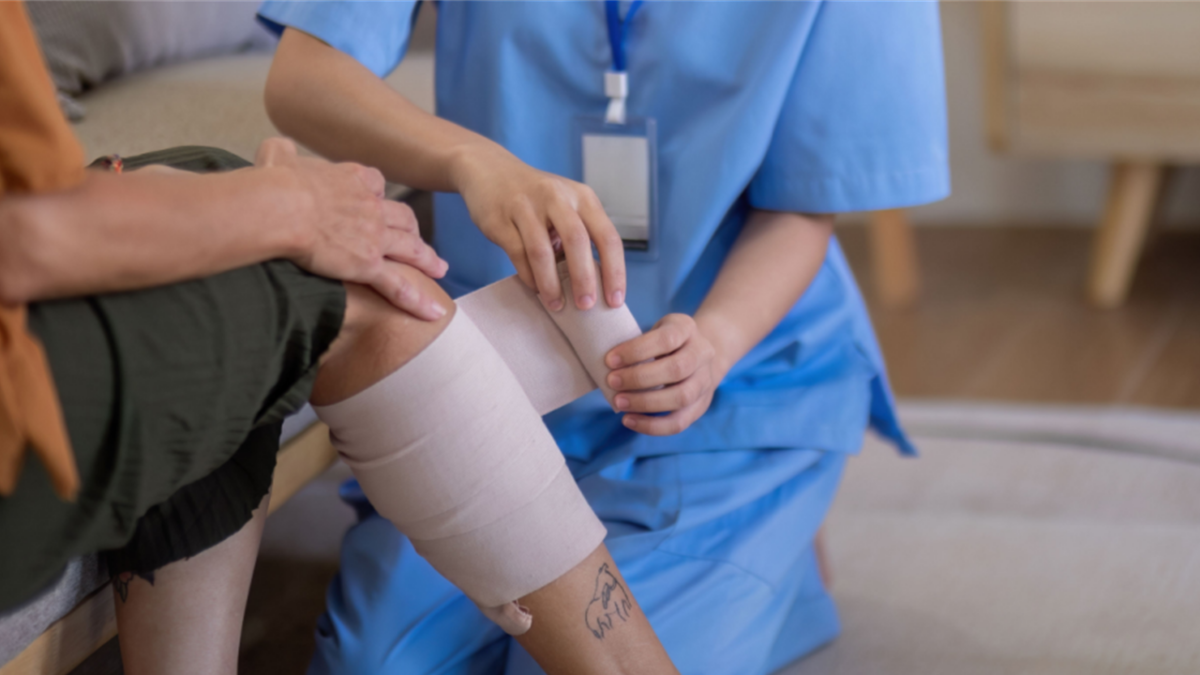After years of Johnson & Johnson baby powder ads targeted to black women, an advocacy group is seeking retribution by suing the healthcare conglomerate.
The National Council of Negro Women (NCNW) filed a lawsuit last week asking courts to make Johnson & Johnson create equally targeted “corrective marketing,” and/or fund outreach efforts warning Black women and their families about the risk of ovarian cancer associated with its product.
The women’s group is being represented by powerhouse civil rights attorney Ben Crump, and together, they’ve laid out specifics of how Johnson & Johnson geared the marketing of its talc powder products to Black women over the years.
Johnson & Johnson has faced thousands of lawsuits over its iconic baby powder, which people claim the company knew for decades contained asbestos. Talc and asbestos are often found together in nature, which is why mined talc can contain the carcinogen.
The lawsuits have been based on claims from women who say they got ovarian cancer after years of using Johnson & Johnson’s baby powder.
Johnson & Johnson removed its talc products off US store shelves in 2020, saying the move was brought on by a drop in demand.
Related: AstraZeneca Prevails in EU COVID-19 Vaccine Lawsuit
“We empathize with anyone suffering from cancer and understand that people are looking for answers,” but those answers have been provided through “decades of independent scientific testing by medical experts around the world has confirmed that our products are safe, do not contain asbestos, and do not cause cancer,” Johnson & Johnson said in a statement.
According to the lawsuit launched by NCNW, posted on Law.com, among the claims brought to the table by the group include hiring an African American specialty ad agency, media reports of Johnson & Johnson documents that outline Black women as a target group, hiring a firm to give out 100,000 samples in Black and Hispanic neighborhoods in Chicago and launching a radio campaign in Southern states aimed at “curvy Southern women 18–49, skewing African American.”
While the group acknowledges in their claim that Black women and their families have received verdicts for damages from Johnson & Johnson, they said that the individual wins don’t address the greater Black community.
Johnson & Johnson has refuted the claims, saying that, “The idea that our company would purposefully and systematically target a community with bad intentions is unreasonable and absurd,” in a statement to Fierce Pharma.
NCNW is the first organized advocacy group that has launched a lawsuit against the company that is specifically calling for revised marketing efforts.
Concerns of asbestos contamination in Johnson & Johnson’s talc-based formulations have been around since the 1970s, with the company accused of ignoring and failing to report them to the US Food and Drug Administration (FDA). Three different lab tests conducted between 1972 and 1975 had found asbestos in its talc, with one case deemed to be at levels considered “rather high.”
For years, Johnson & Johnson denied the claims. However, investigations, including a Reuters examination, company documents and trial testimony revealed that from around 1971 to the early 2000s, the company’s raw talc and finished powders sometimes tested positive for low levels of asbestos. According to Reuters, while company executives, mine managers, scientists, doctors and lawyers “fretted over the problem and how to address it,” it failed to disclose it to regulators or the public.
In 2018, Reuters also detailed many of Johnson & Johnson’s ploys against Black women outlined in NCNW’s lawsuit, where individual Black plaintiffs spoke out about how they felt targeted.
“Those suits have not remedied the specific harm that J&J has caused to the Black community — and to Black women in particular — by targeting their advertisements for this dangerous product at them,” the NCNW lawsuit claims. “That harm is continuing and will remain for as long as J&J fails to take affirmative, corrective action to inform the Black women who were previously targeted by J&J’s targeted advertising campaign.”
Johnson & Johnson is currently battling a case claiming $2.1 billion in damages in Missouri involving 20 women or families of women who had ovarian cancer. More than 25,000 additional lawsuits are pending. Recently, a US Supreme Court refused to hear the company’s appeal to overturn the case.












Join or login to leave a comment
JOIN LOGIN